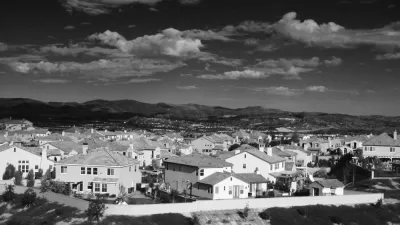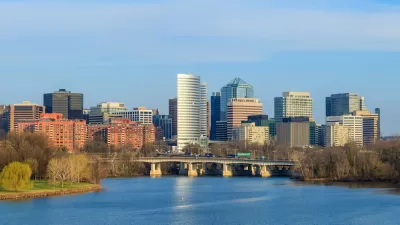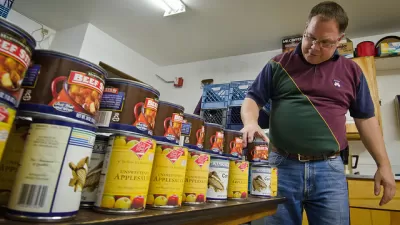Lisa McGirr looks at the growing challenge of suburban poverty, which in the last decade has climbed by 25 percent (almost five times faster than cities), and the larger trends that it signifies.
According to McGirr the effects of this demographic shift are that, "soaring poverty rates threaten the very foundations of suburban identities, suburban politics and the suburb's place in the nation's self-image...The climbing rates of suburban poverty mark a definitive end to the Fordist model of mass production and consumption, and its most internationally recognized poster child: homogeneous middle class families cradled safely in ever expanding suburban developments."
However, as McGirr explains, this traditional image of the suburbs was always somewhat of a fantasy, and its growth was founded on an unsteady terrain of state welfare and private speculation.
According to McGirr, the suburbs are unprepared to dealing with the challenges their residents increasingly face, including gaining access to public services they need, the geographic challenges of decentralized living, and the exodus of the well-to-do for new exurbs and gentrifying urban centers.
And together, these changes and challenges may have a profound effect on the traditional political allegiances and policy demands associated with suburban residents.
"The new poverty may well loosen the suburbs' historic ties to the Republican Party with its emphasis on individualist solutions. Looking toward the future, the new suburban poverty should sound an alarm bell that the suburban "way of life" itself may be better suited to an era now past. It suggests that we should rethink public policies that have long favored homeowners and decentralized living," argues McGirr.
FULL STORY: The New Suburban Poverty

Maui's Vacation Rental Debate Turns Ugly
Verbal attacks, misinformation campaigns and fistfights plague a high-stakes debate to convert thousands of vacation rentals into long-term housing.

Planetizen Federal Action Tracker
A weekly monitor of how Trump’s orders and actions are impacting planners and planning in America.

In Urban Planning, AI Prompting Could be the New Design Thinking
Creativity has long been key to great urban design. What if we see AI as our new creative partner?

San Francisco Mayor Backtracks on Homelessness Goal
Mayor Dan Lurie ran on a promise to build 1,500 additional shelter beds in the city, complete with supportive services. Now, his office says they are “shifting strategy” to focus on prevention and mental health treatment.

How Trump's HUD Budget Proposal Would Harm Homelessness Response
Experts say the change to the HUD budget would make it more difficult to identify people who are homeless and connect them with services, and to prevent homelessness.

The Vast Potential of the Right-of-Way
One writer argues that the space between two building faces is the most important element of the built environment.
Urban Design for Planners 1: Software Tools
This six-course series explores essential urban design concepts using open source software and equips planners with the tools they need to participate fully in the urban design process.
Planning for Universal Design
Learn the tools for implementing Universal Design in planning regulations.
Gallatin County Department of Planning & Community Development
Heyer Gruel & Associates PA
JM Goldson LLC
Mpact (founded as Rail~Volution)
City of Camden Redevelopment Agency
City of Astoria
Jefferson Parish Government
Camden Redevelopment Agency
City of Claremont





























